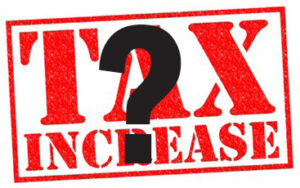State Senate passes Glazer bill to allow for Contra Costa half-cent sales tax increase measure on November ballot
Awaits Gov. Newsom’s signature; will cost county $547,700 even if he vetoes bill; would raise an estimated $81 million per year.
 By Allen Payton
By Allen Payton
On Monday, Aug. 31, the last day of the legislative session, the California State Senate passed SB1349 authored by Senator Steve Glazer (D-7, Orinda), to allow Contra Costa County Supervisors to place a half-cent sales tax increase on the November ballot on a vote of 29-10-1. According to the state’s Legislative Information website, the bill was presented to Governor Newsom at 6:30 p.m., that night. He has until Sept. 30 to either sign or veto the bill and if he chooses to take no action it automatically becomes law.
During a special meeting held on Friday, Aug. 21, the Contra Costa Board of Supervisors voted 4-1 to approve an urgency ordinance placing the measure on the November ballot if the State Senate passed the bill by Aug. 31 and it was signed by the governor. Board Chair Candace Andersen, who opposes asking the voters for a tax increase during the COVID-19 pandemic, was the lone no vote.
As of Friday, the governor still hadn’t signed or vetoed the bill, according to Steven Harmon, Glazer’s spokesman, who wrote, “Checking. Though, as of yesterday I don’t think he had.”
While Newsom has until the end of September to sign or veto legislation, Harmon added, “I think a premium has been made to get a quick signature,” because any delay holds up the printing of the ballots in Contra Costa County.
The measure is estimated to cost the county $547,700 to place it on the ballot, according to County Clerk-Recorder Deborah Cooper.
The supervisors were asked to consider whether to adopt Ordinance No. 2020-23, an urgency ordinance amending the effective date of the ordinance establishing a general Countywide 0.5% sales tax and acknowledge that if Senate Bill 1349 is not approved by the Legislature by August 31, 2020, Ordinance 2020-22 (as amended) will still be printed on the November 3, 2020 ballot, even though the ordinance will not be effective.
So, labeled Measure X, the ballot language is already on the County Elections Division website, just in case the governor signs the bill and if passed will not go into effect if the governor vetoes the bill.
It asks voters, “To keep Contra Costa’s regional hospital open and staffed; fund community health centers; provide timely fire and emergency response; support crucial safety-net services; invest in early childhood services; protect vulnerable populations; and for other essential county services, shall the Contra Costa County measure levying a ½ cent sales tax, exempting food sales, providing an estimated $81,000,000 annually for 20 years that the State cannot take, requiring fiscal accountability, with funds benefitting County residents, be adopted?”
Assistant Registrar of Voters for the county, Scott Konopasek, was asked what is the drop deadline date for sending the ballots to print in time to get them to the voters and avoid the additional cost. He responded, “The ballots are at the printer already. The bill becomes law without a signature as long as he doesn’t veto. In the event of a veto, we will not count or report any results.”
In California, the legislative process works just the opposite of the pocket veto for the president and federal legislation. According to Congressional Quarterly, the “Governor must veto legislation within 12 days of ‘transmittal’ or they automatically become law. However, for bills adopted during the last 12 days of a legislative session and still on the governor’s desk the day the legislature adjourns, usually Aug. 31, the governor has until Sept. 30 to veto before they automatically become law. Governor has a ‘reduction’ veto that provides the ability to reduce – but not increase – proposed appropriations in a particular line item within any spending bill. Legislators can override a veto with a 2/3rd vote of both chambers, but only the governor can call a special session to do so.”
In addition, Supervisor Andersen was asked for any new information her office might have regarding the governor’s action on the bill. She responded, “At our August 21, 2020 Special Meeting the Board of Supervisors authorized putting it on the ballot. It will be on the November ballot, but just would have no effect if the governor chooses to veto the bill. Karen agreed to support it because the elections cost were going to be lower than initially thought since we’re not including the text of the full measure, and the language of the bill was tweaked to better reflect what the governor has signed/agreed to in the past.”
As a result, Measure X will be on the November ballot in Contra Costa County. But if the governor vetoes SB1349, and the measure passes it will not go into effect, which means the sales tax in the county will not increase by a half percent.
the attachments to this post:


























